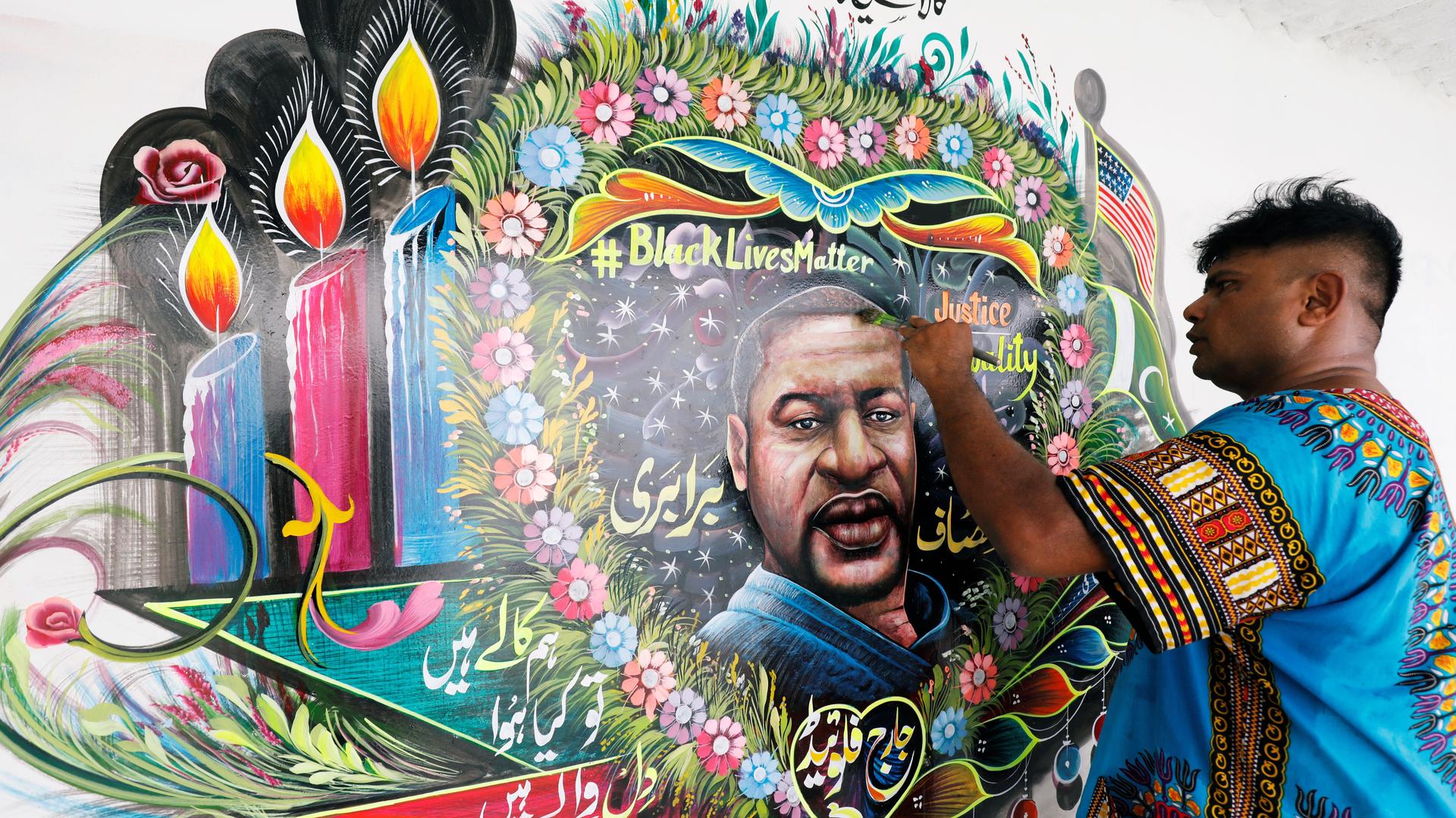Black and South Asian communities find solidarity in fight against racism
When Pakistani politician Tanzeela Qambrani introduced a resolution to the Sindh Assembly condemning George Floyd’s death, she carried with her a photo of him.
Qambrani’s ancestors were enslaved by traders; she’s a fourth-generation African and says that background has made her feel connected to Floyd, and the activism his tragic killing has inspired.
Related: A global push for racial justice in the climate movement
“I could see when George Floyd was murdered that the police officer acted as judge, court and executioner,” Qambrani said through an interpreter during a Zoom meeting late last month, which brought together 1,500 people across the globe to discuss Black and South Asian solidarities.
“This is familiar to me because it is the same mentality that oppresses us everywhere.”
“This is familiar to me because it is the same mentality that oppresses us everywhere.”
The forum, organized by Equality Labs, a South Asian advocacy group based in the US, featured several speakers who are bound together in the fight against racism. Engaging people from all over the place is just an initial step in a complex process to build lasting transnational connections, the event’s organizers say.
“If the present moment is a moment in which we only talk about police murder of Black people, we miss out,” said Harvard University professor Cornel West, who was one of three speakers at the June 26 event.
West said oppressed people have to stand in solidarity as Black civil rights leaders did with freedom fighters in India nearly a century ago.
“We’ve got to make these connections so that our solidarity is real and concrete. That’s precisely why our conversation today is so very, very, very important.”
Related: Black history is ‘integral part’ of British culture, says Black Curriculum founder
Chandrashekhar Azad is a social activist who leads the Bhim Army, a group that fights for the rights of lower-caste Dalits in India, who face discrimination from higher-caste Brahmins. He spoke through an interpreter during the Zoom call.
“The abuse of human rights within India is extremely rampant, and our situation is very unsafe.”
“The abuse of human rights within India is extremely rampant, and our situation is very unsafe,” said Azad, who added that lower-caste women are regularly sexually assaulted and lower-caste men face mob lynchings.
Dalits have little access to good health care, education or jobs.
“We’ve been trying to campaign on similar lines over here back home in India. We’ve learned so much. We’ve started to have moments like Dalit Lives Matter, Muslim Lives Matter. So, we’re learning a lot, and we’re together in this struggle.”
Dalits say they’re persecuted by Prime Minister Narendra Modi’s government, which has also passed a law that Muslims say is designed to strip them of citizenship.
Yet, many Indian Americans believe Modi’s been good for India, and support him, as evidenced last year by the huge “Howdy, Modi!” rally in Houston, where the prime minister appeared alongside US President Donald Trump.
Related: Police reform requires culture change, not just diversity, advocates say
Sharmin Hossain, political director for Equality Labs, said the Indian diaspora provided crucial support for Modi’s rise in India.
“Without the pipeline of support these people received from upper-caste Hindu networks in the diaspora, India’s right-wing militias and the Modi government would lack the financial and diplomatic support they need to normalize India’s policies of violence towards its caste and religious minorities.”
“Without the pipeline of support these people received from upper-caste Hindu networks in the diaspora, India’s right-wing militias and the Modi government would lack the financial and diplomatic support they need to normalize India’s policies of violence towards its caste and religious minorities,” she said in an interview with The World.
Related: In Northern Ireland, police reform meant tackling institutional sectarianism
Azad, the Dalit leader in India on the Zoom call, emphasized the need for unity.
“This is a fight for humanity. We want to be treated as human beings and not animals,” he said. “And I want to promise all of you that you are not in this alone as you fight in this in your respective countries. You will always find supporters over here in India.”
The story you just read is accessible and free to all because thousands of listeners and readers contribute to our nonprofit newsroom. We go deep to bring you the human-centered international reporting that you know you can trust. To do this work and to do it well, we rely on the support of our listeners. If you appreciated our coverage this year, if there was a story that made you pause or a song that moved you, would you consider making a gift to sustain our work through 2024 and beyond?
